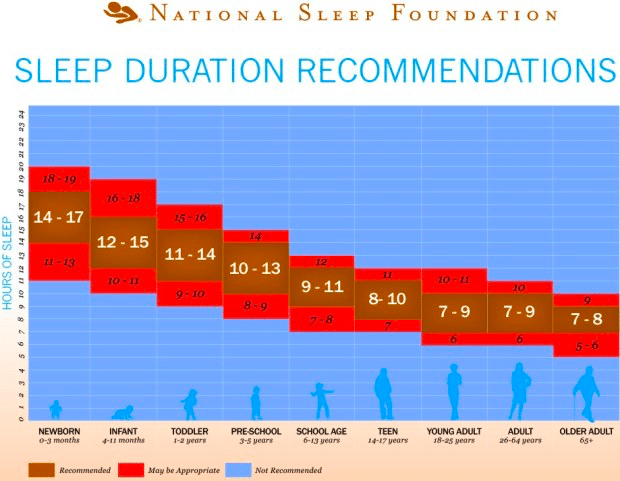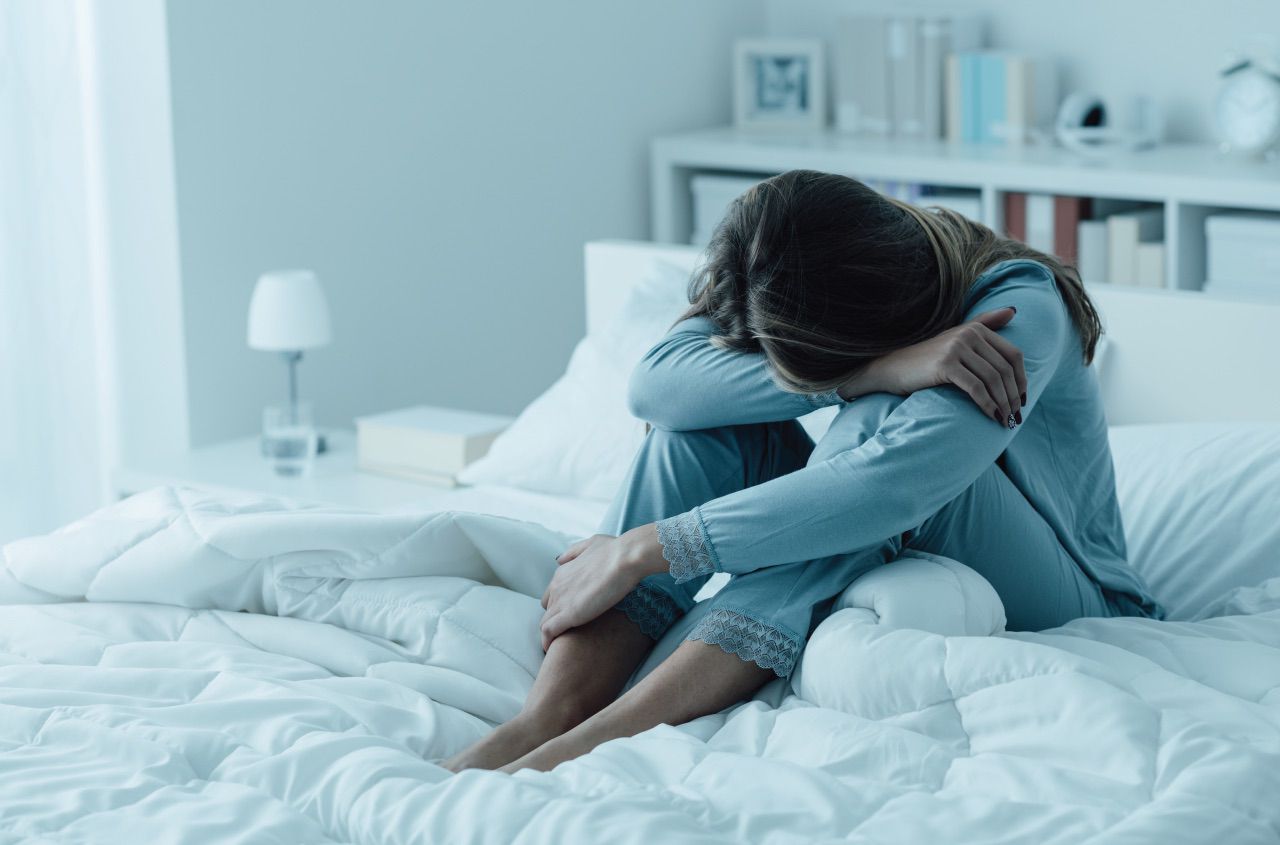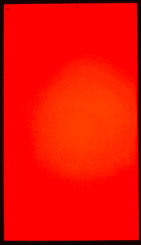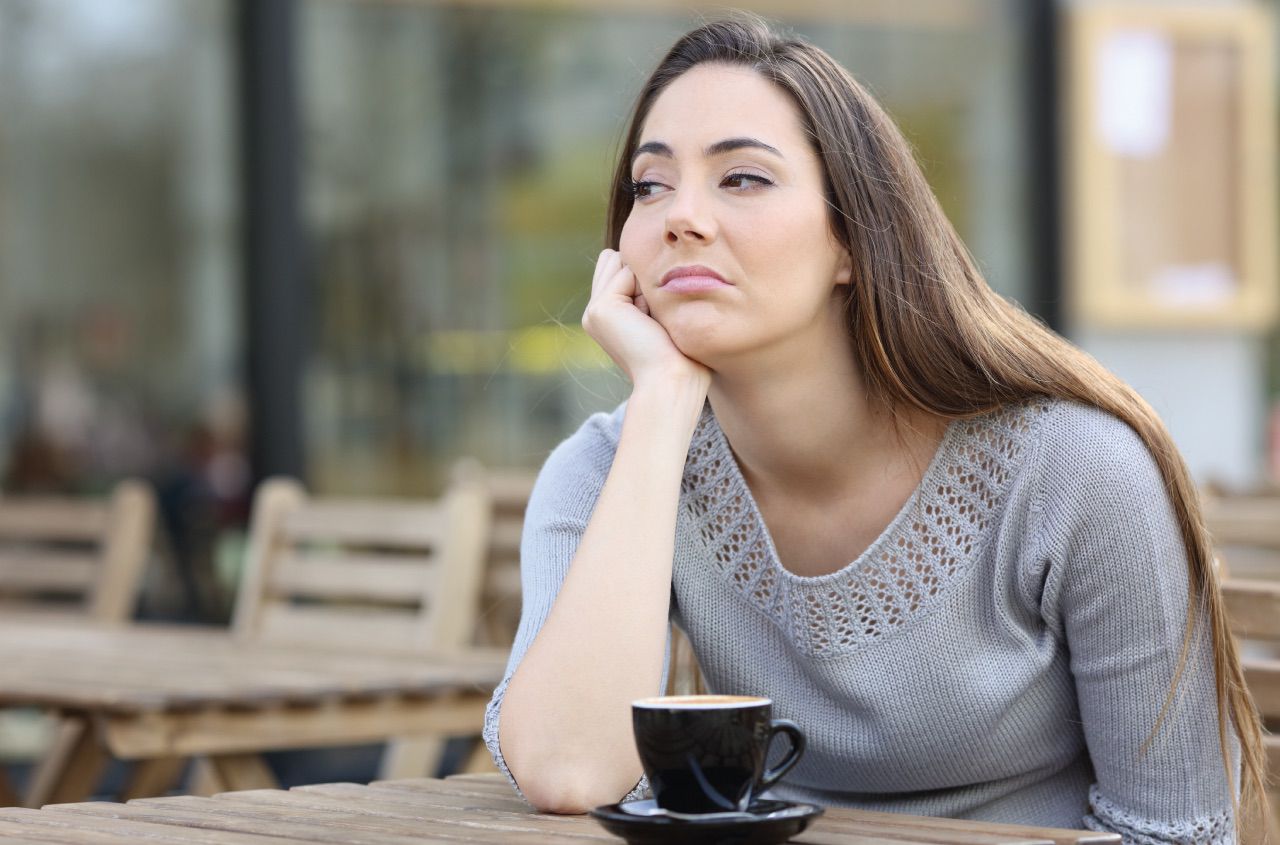Have you ever noticed how sleep seemingly fixes pretty much everything?
When you get sick, what’s the first thing you want to do? Sleep.
Why Do We Need Sleep?
Aside from the obvious immune system benefits, sleep also positively adjusts the mood and emotional regulatory centers of your brain. I’m sure you might be wondering why that matters if your only goal in life is to get ‘mo bigger.’
Valid point, but keep in mind, eventually you will reach an age when cognitive decline and other neuronal degenerative conditions become a consideration. But at that point, it will largely be too late to prevent the effects entirely. So, realize that the next 30-50 years of your life directly impact your health and quality of life as you age.
The average human spends 36% of their life asleep.
175 years ago, we averaged nearly 9.5 hours of nightly sleep.
Nine and a half hours! When was the last time you slept over nine hours?
If you’re like most people, that rarely happens – maybe on the weekends if you’re lucky … maybe.
Today, we’re seeing that number creep closer and closer to 6 hours nightly. In other words, over nearly two decades, we’ve somehow managed to knowingly reduce our nightly sleep by almost 37%. 1) 2)
Over the course of a year, this amounts to 1,278 hours or 53 DAYS of sleep. Every year, you’re losing 53 days of sleep – pretty crazy, right?
“Humans are notoriously poor at assessing the long-term benefits and risks of their lifestyle choices.” — TIME magazine3)
However, it seems that as a society, we have begun to shun the idea of sleep as a necessary tool for health and performance. New York City is affectionately known as the “city that never sleeps,” businesses 24/7/365, and USPS literally never shuts down. In my post, “I’ll Sleep When I’m Dead” – The Rallying Cry of the Weak, I discuss how some people think 5 hours of sleep is enough. It’s not.
Perhaps it’s time to consider the elephant in the room – is our attitude toward sleep and the environmental conditions we’ve created become our biggest weapons against sleep?
“Ditch the Science, Just Tell Me What I Need to Know…”
If you regularly have sleep problems, you’ll likely fit into one of 3 categories:
- Psychological
- Physiological
- Combination of 1&2
I’m going to break down each one and provide strategies that can be helpful when applied consistently over an extended period of time.
Simple Sleep Solutions: Psychological
The mind is a powerful thing. In the literature and anecdotally, we’ve seen its overwhelming ability to change physiology and influence clinical outcomes.
It’s somewhat like a two-way street – psychology affects physiology and vice versa.
We can never overlook the influence that each of these factors plays on the other. Given our extremely stressful culture, it’s likely that psychological manipulation of physiology is already taking place for many individuals. This means they likely fall into category #3.
These psychological interventions can help regulate the cognitive response to stress:
- Headspace
- Calm
- Shift State
- Insight Timer
- CBTI (Cognitive Behavioral Therapy for Insomnia)
- Guided Full Body Scan
- Counseling or Additional Talk Therapy
This is one of the hardest areas to change for most because you can’t get inside someone’s head and force them to think differently.
However, it’s important to keep the following in mind:
Beliefs > Thoughts > Feelings > Emotions > Actions
Someone’s beliefs about themselves, their situation, job, relationship, career, health, or any number of other important topics drive how they think about the situation, how they feel about it, and then what they do about it.
If you want to change someone’s actions, you must change what they believe. Start from the inside and work your way out. All the tools above are great ways to do that.
Simple Sleep Solutions: Physiological
Sleep physiology is fascinating as circadian biology continues to tie together physiology with subsets of medicine.
When you can’t sleep, there’s often an explanation. But more often than not, people have no idea what’s going on. All they know is they can’t sleep, and it is maddening.
You spend your nights trying to think about nothing and drift off to sleep, but you don’t feel tired, or your body fights the need for shuteye.
While you’re racking your brain for the solution, use these basic sleep principles that must be in place to ensure high-quality, restful sleep:
Activity
Plain and simple, the human body was designed to expend energy throughout the day. We are not designed to sit behind desks typing or wearing out our thumbs scrolling through social media all day. When you’re active, you build up metabolites in the brain (i.e., ADP & AMP), which play a considerable role in signaling the need for sleep.
Think back to when you were a kid. Remember when you spent all day playing outside with your friends and would fall asleep effortlessly only to awake the next day rested and ready to do it all over again?
Your brain knows what your body needs: movement, exertion, and locomotion.
TAKEAWAY: Be active throughout your day if you want to ensure sound sleep.
Sunlight
You will never mimic the effects of sunlight with any pill, powder, food, or digital device of any kind. Vitamin D supplements are a stop-gap measure because the influence of sunlight on human physiology is complex and wonderfully supportive of health.
Sunlight not only helps in the production of vitamin D, but it also plays an integral role in circadian (daily) rhythms. These rhythms have been noted in everything from hormonal fluctuations to digestive efficiency, along with the effectiveness of pharmaceutical drug interventions.
If circadian rhythms become dysregulated, you have a systemic problem.
TAKEAWAY: 15-30+ minutes of daily sunlight on as much of your skin as possible without sunglasses is the bare minimum for ensuring quality sleep. Now don’t get me wrong. Sunglasses can be helpful if you’re experiencing exceptionally long periods of sun exposure. However, some sunlight needs to enter the eyes without sunglasses, so graded exposure (aka slowly increasing the dose over time) is important.
Exercise Timing
Exercise is excellent at raising our circulating concentrations of stress hormones – epinephrine, norepinephrine, and cortisol. In the morning, this works beautifully to launch circadian rhythms and ensure that the necessary metabolic machinery is put in motion to drive sleep later in the day.
However, if you find yourself working out at 9 or 10 pm, you’ll likely suffer some of the undesired effects of adrenaline as you find yourself wide awake and struggling to relax.
TAKEAWAY: All strenuous exercise should be completed at least 2-3 hours before you plan to go to bed.
Electronic Usage and Intensity
Electronics are the ultimate double-edged sword. Unfortunately, we’ve grown so accustomed to them that we can’t seem to live without them.
Our every move is well-documented and over-filtered to alert our friends about everything going on in our lives.
However, the biggest issue with electronics is the unfortunate effects they have on physiology. Blue light is the biggest culprit because it disrupts circadian rhythms by altering melatonin secretion from the pineal gland.
One study found that using an iPad for 4 hours 5 nights in a row delayed the nightly melatonin secretion by 1.5 hours and resulted in users taking 60% longer to fall asleep.4)
It’s nearly impossible for people to stop using them completely because they are tied to enjoyment and the demands of work, school, and social connectivity.
Since that’s the case, you need solutions to prevent the harmful effects of blue light.
Color filters are one of the simplest and easiest solutions. They’re built into the iOS platform and are completely free. Here’s how you set them up:
Once you enable the color filters, it makes your screen look something like this:

You can change the color and intensity of light that the color filter blocks, but prioritize red and orange hues, while blocking blue at the same time.
TAKEAWAY: Screens aren’t helpful to sleep in any way. However, if you have to (or choose to) use them, have systems in place that negate their effects.
Simple Sleep Solutions: Combination Therapy
Most people find that their sleep problems are a combination of psychological and physiological issues.
So, you likely need to try solutions from both categories above. No one has all the answers, and you are an N of 1.
If you’re not familiar with that terminology, research studies often refer to subjects using “N” to denote the number of participants. N=23 means there were 23 people in the study.
In other words, you are a unique individual (“N”) of 1. No one can tell you exactly what will work for you because no one understands your unique biochemistry and genetic individuality as well as you do.
Don’t be afraid to turn yourself into a human guinea pig and venture down the rabbit hole. Science is simply a guide, a general framework that utilizes the scientific process to test a hypothesis and determine what doesn’t work so that we get a slightly better idea of what might work.
Here are a few tools to add to your toolbox:
Sleep Diaries
Life gets busy, and you just can’t always remember everything. Shoot, sometimes I forget what I ate for lunch a few hours ago. Diaries or journals are great ways to look back at symptom progression, lifestyle/supplemental/nutritional interventions, or nightly quality and quantity of sleep.
This may be a simple sheet of paper and pen rather than the newest sleep technology with all the fancy bells and whistles.
Build/Maintain a Garden
While this may seem trivial, this strategy actually incorporates a number of strategies from above – sunlight, activity, mindfulness, time in nature, and exposure to beneficial microbes in the soil.
This may require a little money and time each day, but you may find that the rewards of fresh homegrown produce and improved sleep surprise you.
Change Your Environment
If you’re not aware of it by now, your environment is the largest determining factor in your daily decisions. You may not realize its influence, but consider how some individuals act (or perhaps “react”) to their environment when around friends vs. family vs. their significant other vs. alone.
You are a product of your environment. If you live in a culture that emphasizes stress and productivity, don’t be surprised when (not if, but when) your sleep takes a hit.
So, if you don’t like it, change it.
Lead by example – move, change jobs, change careers, find new friends, develop new hobbies, try new things, eat new foods, try new supplements, shift your schedule, go to bed earlier, sleep in more, stop watching TV, put down your phone, and focus on the people around you. The list is endless.
This is your life, and you only get one shot. Don’t spend your days so caught up in the stress and hustle that you lose track of yourself and your health.
You are ultimately responsible for your own health – no one else is going to do the work for you. Lead from the front and change your environment. It will change your sleep and subsequently your life.
Social Media Takeaways
- The vast majority of our population likely doesn’t sleep enough and encounters chronic sleep deprivation at some point in their life.
- Your subjective perception of sleep deprivation’s impacts on your body does not match the objective performance and cognitive decline.
- Sleep problems are largely broken down into 1 of 3 categories: psychological, physiological, or a combination of both. Each requires a comprehensive and systematic approach when it comes to solving various sleep issues.
- You are responsible for you – no one else is tasked with maintaining your health, not even your doctor.
References
| ↑1 | National Sleep Foundation’s updated sleep duration recommendations: final report read article |
|---|---|
| ↑2 | National Sleep Foundation Recommends New Sleep Times read article |
| ↑3 | TIME Magazine: The New Science of Exercise read article |
| ↑4 | PNAS Research article: Evening use of light-emitting eReaders negatively affects sleep, circadian timing, and next-morning alertness read article |







